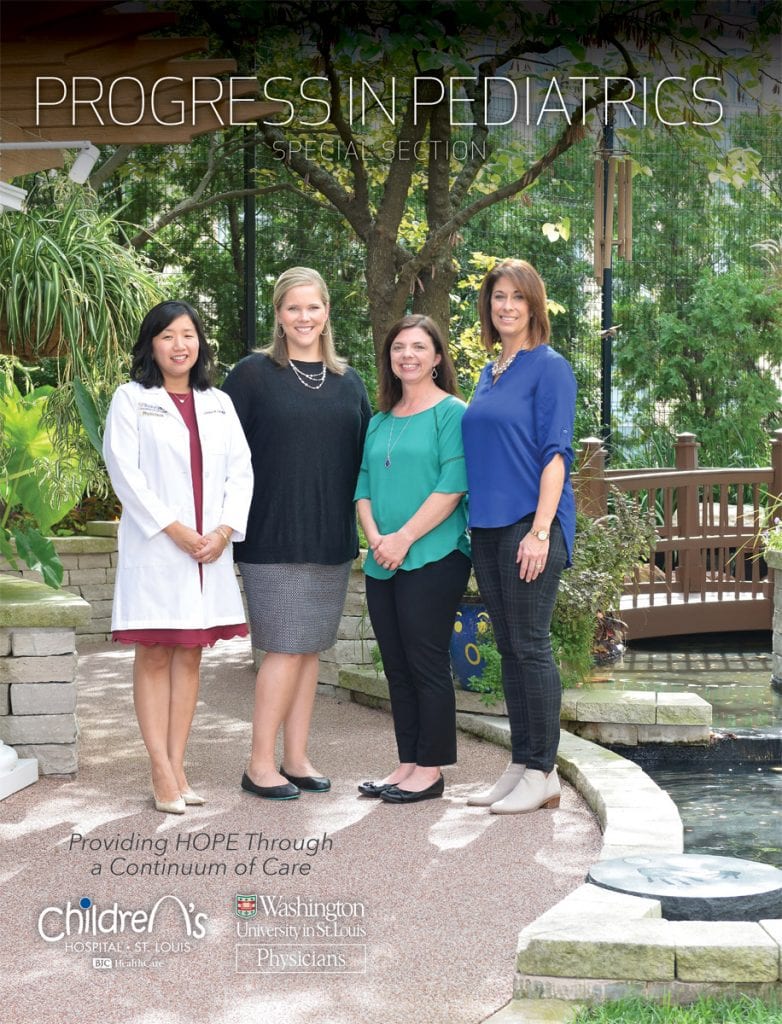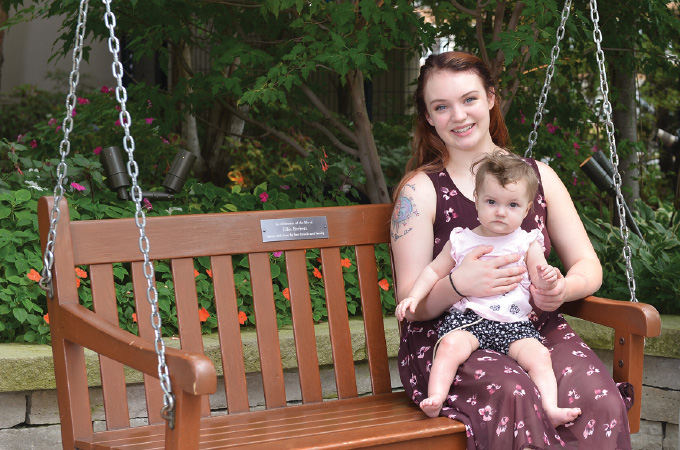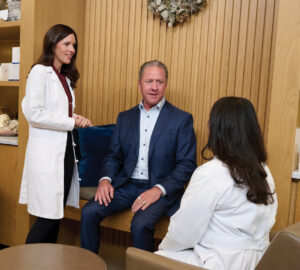Salem Prestien was 22 weeks pregnant when she learned her daughter, Lilia, would be born with a heart defect. Already caring for an 18-month-old with medical challenges, Prestien and her family decided to move from Springfield, Missouri, to St. Louis to be closer to the St. Louis Children’s and Washington University Heart Center. Staffed by a multidisciplinary team of fetal heart experts, including pediatric cardiologists, neonatologists and surgeons, the center provides a continuum of care from fetal diagnosis through postnatal health and neurodevelopmental treatment.
Many parents are referred to the Heart Center by their OBs who suspect a fetal heart problem. The goal is to get families in right away to begin counseling them on the nature of the defect and to plan for the baby’s postnatal needs, says Dr. Caroline Lee, medical director of the Fetal Heart Center, a division of the Heart Center. “We then meet every month or so throughout the pregnancy to make sure the family understands everything that’s going to happen,” Lee says

Lilia was born at Barnes-Jewish Hospital, the center’s affiliated adult hospital, last October. She immediately was taken to the cardiac intensive care unit for a few procedures, and she will undergo a more intensive surgery in a few years. Her progress continues to be evaluated by the Heart Center’s High-Risk Infant Interstage Monitoring Program, which prepares families to take their babies home and helps them monitor growth and oxygen levels. “We provide them with an oxygen saturation monitor and scale, and at least twice a week, they provide an update on the baby’s status,” Lee says. “This gives parents some peace of mind and helps us track the baby’s progress.”
Most infants with cardiac issues have delayed development. The center’s Cardiac Neurodevelopmental Program helps with that. “As survival rates improve, we’re increasingly focused on quality of life,” Lee says. Therapy is arranged wherever the baby lives, and local patients go to the center’s neurodevelopmental clinic to be monitored and treated by a multidisciplinary team, including a neurologist, psychologist, dietitian, and physical, occupational and speech therapists, among other experts. The Heart Center doesn’t just care for its small patients, however. Recognizing that parents need emotional support throughout the process, staff refers them to a Perinatal Behavioral Health Service therapist for counseling during pregnancy and the postpartum period. “The counseling was so important because it gave me a place to go every week where I knew, even for just an hour, that I wasn’t going to be taking care of someone but rather someone was going to be taking care of me,” Prestien recalls.
Lilia just turned 1 and is doing well, her mother reports. “She is learning to eat, roll and crawl—all of the regular things babies are supposed to do,” Prestien says. “Moving to St. Louis was the best decision we ever made. Now that we’re just down the road from the hospital, Lilia gets to have therapy every week, which has helped close any gaps in her development caused by her hospitalizations. We also are able to live with a much more comfortable state of mind knowing that if she should need immediate care, we’re already in the best place for her.”
The St. Louis Children’s and Washington University Heart Center offers a complete continuum of care for its patients and their families. For more information, visit stlouischildrens.org/conditions-treatments/heart-center or call 800.678.5437. Pictured on the cover: Fetal heart center director Caroline Lee, M.D.; Julie Stumpf, MSN, R.N.; Mary Jane Broge, R.N., CPNP; Kym Galbraith, R.N., BSN.
Cover design by Julie Streiler | Cover photo by Bill Barrett
Pictured at top: Salem Prestien with her daughter, Lilia
Photo: Bill Barrett








